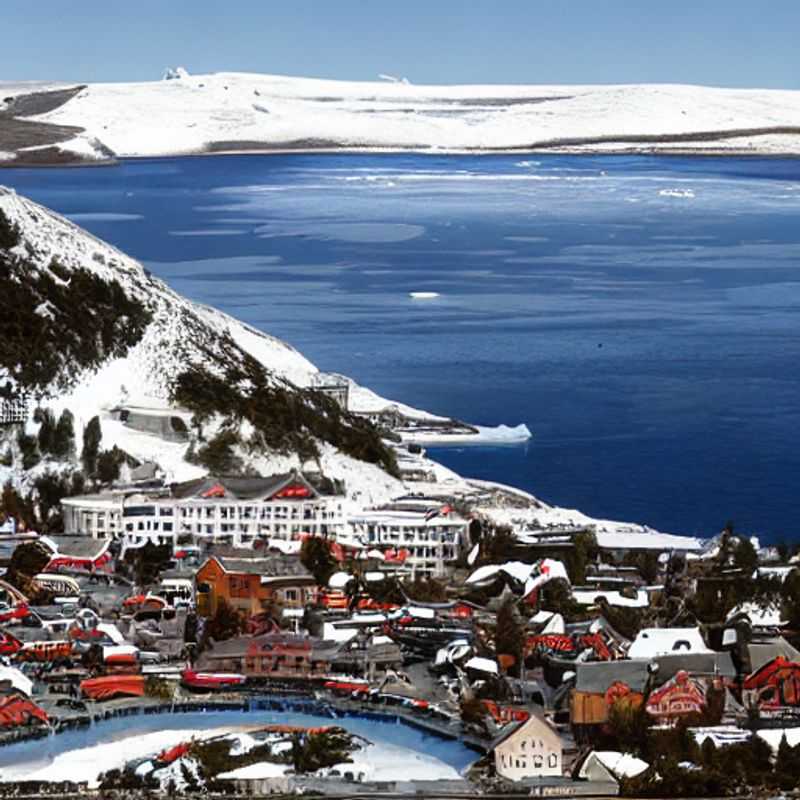Cape Town's Insta-Heaven: Top 5 Luxury Spots for the Social Media Traveler!

Is Cape of Good Hope Safe for Visitors in 2026?
Cape Town, South Africa, and specifically the iconic Cape of Good Hope, is generally considered safe for tourists looking to visit in 2026, provided they take standard precautions. Like many popular tourist destinations globally, petty crime can occur, so it's wise to be aware of your surroundings. When visiting the Cape of Good Hope Nature Reserve itself, focus on enjoying the breathtaking scenery and wildlife. Stick to marked paths and avoid displaying expensive valuables openly. It's recommended to travel in groups if possible, especially during dawn or dusk. Book accommodation in reputable areas known for tourist safety, and always use trusted transportation services. While the natural beauty of the Cape is its main draw, being prepared and exercising common sense will ensure a memorable and safe visit in 2026.

You may also like
Cape Town in Winter: Sun, Snow, and Social Media Gold!
Luxury Escapes & Instagram Dreams: Cape of Good Hope's Winter Wonderland
Chasing Winter Sun: Luxury Cape Town for the Discerning Social Media Traveler
Best Kept Secret: Cape of Good Hope's Winter Charm (and Killer Social Media Shots!)
Off-Season Opulence: Affordable Luxury in Cape Town During Winter Months
Beat the Crowds: Luxury Cape Town Winter Getaway for the Stylish Social Media Influencer
Winter Sun & Social Media Success: Your Guide to Cape Town's Hidden Gems
Cape Town's Winter Wonders: Luxury Lodges & Unforgettable Instagram Moments
Jambo, fellow adventurers! Thinking of a solo trip to the Cape of Good Hope in South Africa's winter? Fantastic choice! As your seasoned guide, let me illuminate your path. Winter in the Cape (roughly June to August) offers a unique charm, quite different from the bustling summer months. Expect average temperatures hovering around 10-18°C (50-64°F), so pack layers! Rainfall is typical, though not torrential, and snowfall is virtually unheard of.
Forget skiing; this is a coastal adventure! Hiking along the dramatic cliffs of the Cape Peninsula is breathtaking, even in winter. Whale watching is a popular winter activity – you might even spot the majestic Southern Right whales. The Table Mountain National Park remains accessible, though some trails might be temporarily closed due to weather. Transportation, primarily buses and rental cars, functions normally, though occasional delays due to rain are possible. Expect fewer crowds than the summer rush, allowing you to savor the beauty without the jostle.
Daylight hours are shorter, naturally, but still offer ample time for exploration. Accommodation costs tend to be slightly lower than in summer – you can find comfortable guesthouses or budget-friendly hotels for around $50-$150 per night. Activities like the guided tours to Cape Point (approximately $30) or a boat trip for whale watching (from $80) are readily available.
Now, let's talk food! Indulge in the vibrant Cape Malay cuisine – bobotie (a spiced minced meat bake) and Cape Malay curry are must-tries. Expect to spend $20-$40 per day on delicious meals. Public transportation is efficient and affordable; a day pass on the MyCiti bus system costs approximately $5. A rental car will provide more flexibility but add to your budget (approximately $50 per day including insurance).
Regarding flight cancellations and transportation delays, they are infrequent in the Cape during fall, but always check weather reports and have backup plans. The local culture is a captivating blend of African, European, and Asian influences. Listen to the sounds of Cape Town – the rhythmic waves crashing against the shore, the lively chatter in the streets, the soulful melodies of local musicians. The architecture is a delightful mix of Victorian, Georgian, and Cape Dutch styles.
People are generally friendly and welcoming. You’ll find a mix of fellow travelers and locals, all eager to share their experiences. Popular local pets are dogs and cats. Expect to see various indigenous plants, like fynbos, adding to the unique beauty of the landscape. And remember, safety is paramount. Always be aware of your surroundings and stick to well-lit areas at night.
Total estimated cost for a 7-day trip (excluding flights): $1050 - $2100 (Accommodation, Activities, Food & Transportation). This is a rough estimate and can vary depending on your choices and preferences. Do your research and book in advance, particularly for accommodation and tours, to get the best deals.
Lastly, remember to embrace the unexpected and be open to new experiences. Enjoy the adventure – it's your story to tell!

You may also like
Cape of Good Hope: 2026 Backpacker Challenges & Rewards
Embarking on a backpacking adventure to the Cape of Good Hope in 2026 promises a captivating blend of thrilling challenges and profound rewards. The primary allure for backpackers lies in its diverse landscapes, ranging from the iconic Table Mountain, offering challenging yet exhilarating hikes with breathtaking panoramic views, to the rugged coastlines teeming with marine life, providing opportunities for unforgettable whale watching and shark cage diving experiences.
Navigating the region in 2026 will require backpackers to be well-prepared for variable weather conditions. The Cape can experience anything from scorching sun to strong winds and sudden rain, necessitating versatile packing and a flexible itinerary. Transportation can also present a challenge, with reliance on local buses or ride-sharing services for reaching more remote attractions. However, this also fosters deeper cultural immersion and interaction with local communities, a significant reward in itself.
For the budget-conscious traveler, the Cape offers a wealth of free and low-cost activities. Exploring the Kirstenbosch Botanical Gardens, hiking the many trails of the Table Mountain National Park, and simply soaking in the vibrant atmosphere of Cape Town’s V&A Waterfront are all highly rewarding without breaking the bank. The sense of accomplishment after conquering a challenging hike or successfully navigating public transport in a foreign land is a powerful motivator for many backpackers.
Furthermore, the rich history and cultural tapestry of the Cape, from the legacy of Robben Island to the vibrant Bo-Kaap neighborhood, provide an intellectual and emotional reward that extends far beyond the physical journey. Backpackers in 2026 can expect a destination that tests their resourcefulness while simultaneously enriching their understanding of the world and themselves. The key to maximizing the rewards and minimizing the challenges lies in thorough research, embracing spontaneity, and a willingness to step outside of one's comfort zone.